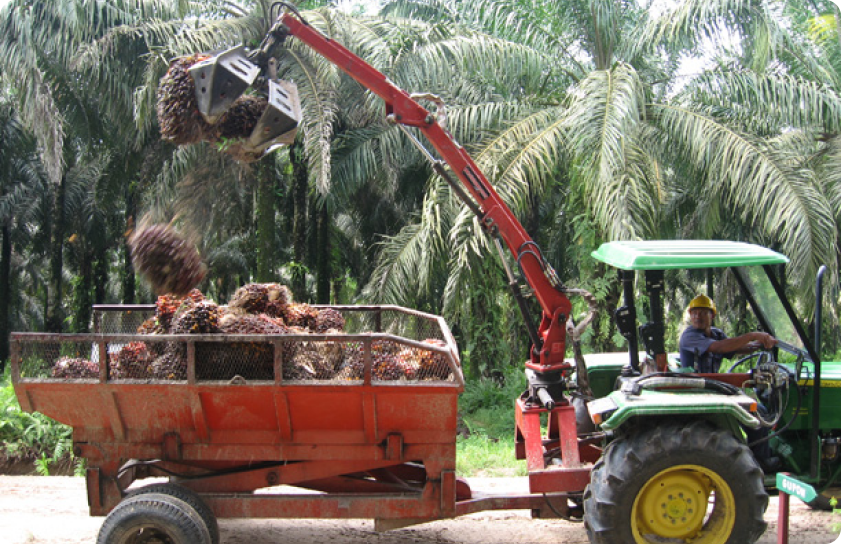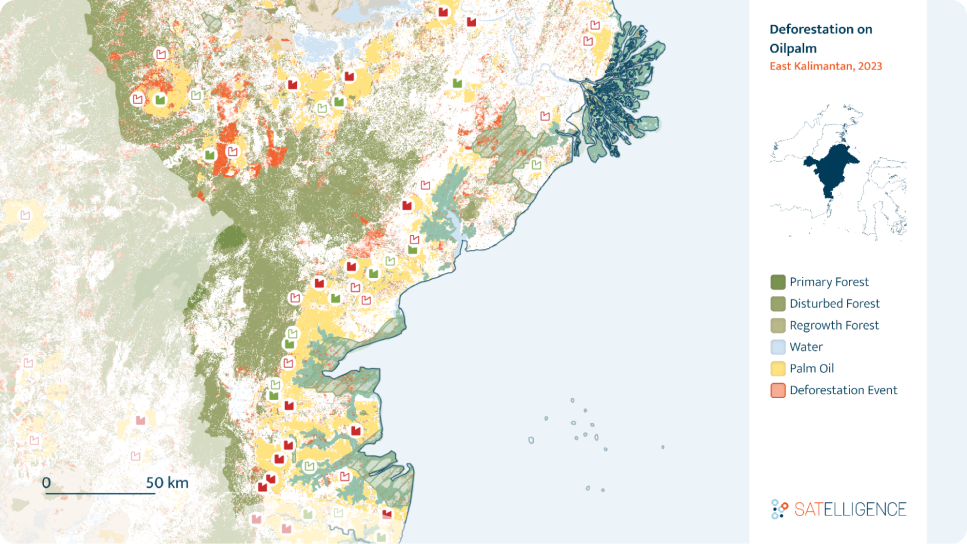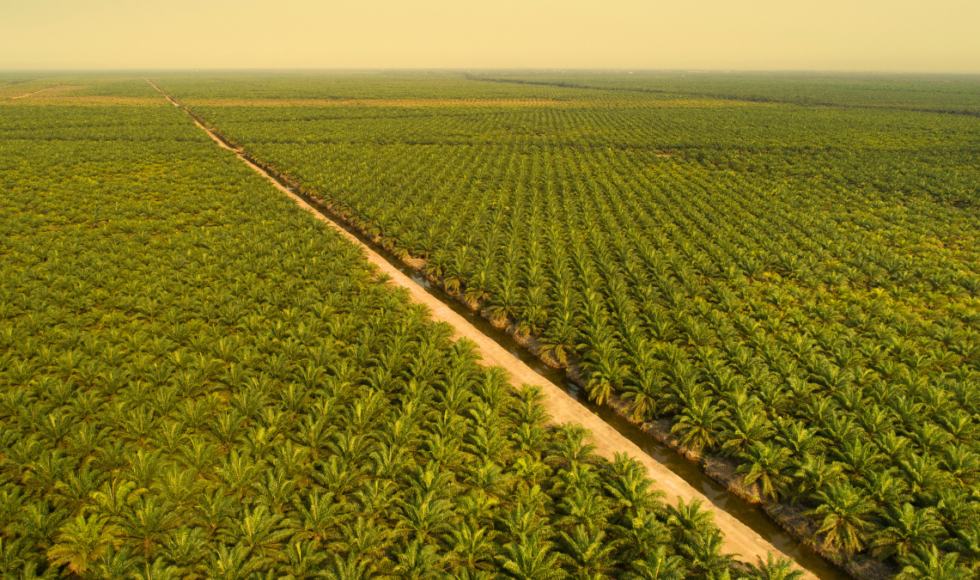About Neste
Neste creates solutions for combating climate change and accelerating a shift to a circular economy. They refine waste, residues and innovative raw materials into renewable fuels and sustainable feedstock for plastics and other materials. They are the world’s leading producer of sustainable aviation fuel and renewable diesel and developing chemical recycling to combat the plastic waste challenge. For more information, please visit their website.
Problem
Neste, the world’s leading producer of sustainable aviation fuel, renewable diesel and renewable feedstock solutions for various polymers and chemicals industry uses, is committed to achieving carbon neutral production by 2035.
Neste uses a wide variety of sustainably-produced raw materials annually to produce renewable products. Neste partnered with Satelligence to achieve greater transparency in PFAD (Palm Fatty Acid Distillate) supply chains.
Satelligence’s satellite-based environmental risk monitoring tools are proactively capturing deforestation risks in supply chains, and enabling better engagement with their suppliers.
For companies in the agricultural sector with long-tail supply chains, obtaining reliable data about environmental risks, such as deforestation, can be tricky. Especially when trying to get information at the farm level. New regulations such as the EU’s Regulation on Deforestation Free Products are placing even more emphasis on the need for companies to ensure their supply chains are deforestation free.
Given the large number of stakeholders involved, and the large areas of land that need to be checked for deforestation, there are many moving parts. Companies can be overloaded with information, and reliable data is key.
Solution
Neste has been utilising the scalability of Satelligence’s platform. Satelligence calculated Neste’s AOI (Area Of Interest) by applying a 50km radius to the mills that Neste selected. As such, the project will cover 1,049,022 km ², that’s over half of Indonesia’s total land area.
Transparency, reliability and trust are cornerstones of Neste’s and Satelligence’s partnership. Satelligence’s comprehensive library of traceability data will be combined with near real-time satellite monitoring of Neste’s PFAD supply chain in Indonesia, Malaysia and Thailand. Satelligence’s methodology is optimised for trust and stakeholder assurance with Ernst and Young verification.
The data that Satelligence provides is curated and calibrated to comply with upcoming US, EU, UK regulations on deforestation. This is crucial for Neste’s sustainability ambitions, as Neste only buys from suppliers who meet strict sustainability criteria. Neste’s sustainability ambitions are driven by a desire to improve industry-wide supply chains through a standardised approach to traceability. Since April 2017, Neste has engaged with stakeholders and mapped large swathes of its supply chain.

Results
Satelligence’s traceability platform will grant Neste unprecedented supply chain visibility, making sure that Neste’s PFAD suppliers can be traced and held to industry-wide sustainability standards.
Satelligence’s app provides a Verified Deforestation Free (VDF) module, that will show Neste the risk of deforestation that their mills pose as a percentage.
Relieving the burden of data collection in this way means that Neste will be able to pinpoint areas of deforestation risk easily and react accordingly.
This way, they can be assured that they will stay in line with commitments like No-Deforestation, No-Peat, and No-Exploitation (NDPE). The data supports improving the supply chain sustainability and compliance with existing and upcoming regulations.

